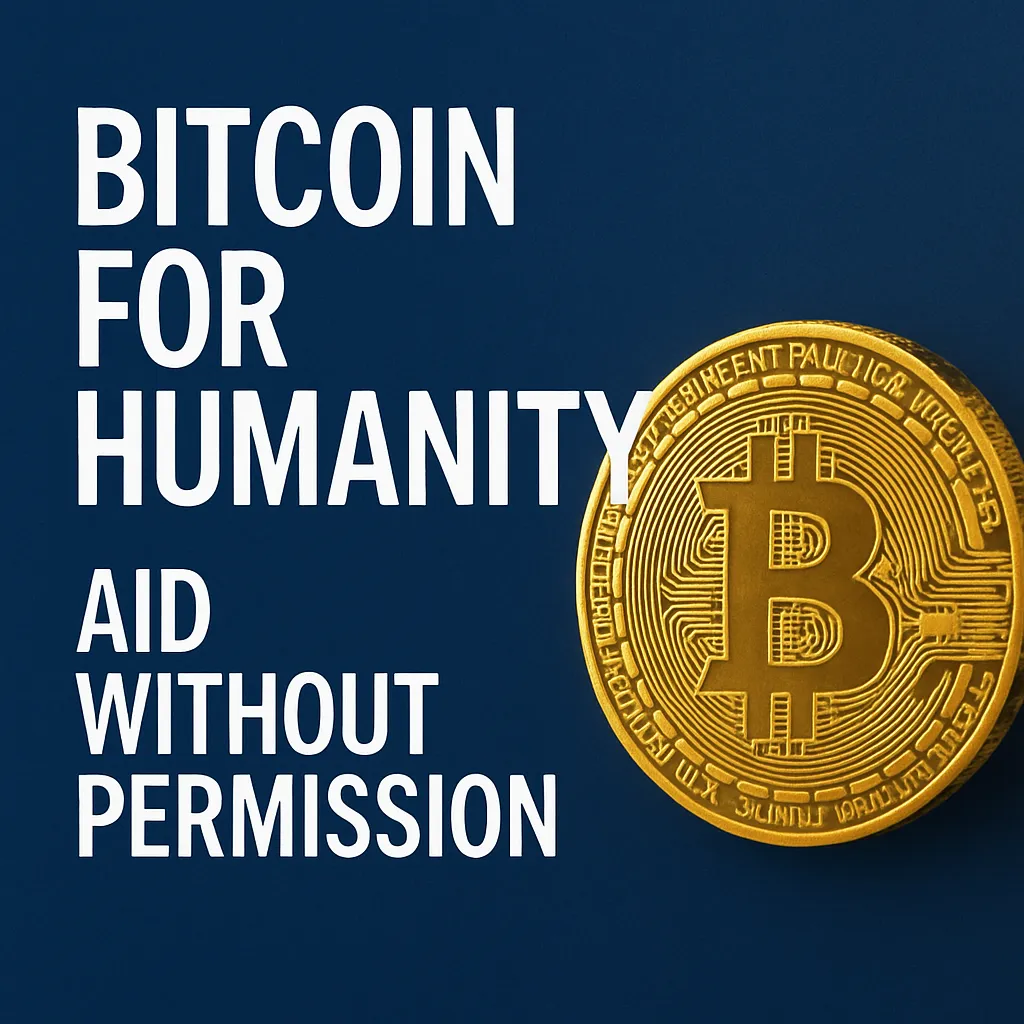
Bitcoin for Humanity: The Aid That Can’t Be Stopped
In the world of humanitarian relief, bureaucracy can kill. Corruption siphons off funds. Banking restrictions delay transfers. And in the most desperate places on Earth, the people who need help the most are often the least able to access financial systems.
But what if money didn’t need permission?
Bitcoin's Superpower: Borderless Finance
Bitcoin offers more than number-go-up excitement. It offers access. With nothing but a phone and a connection, anyone can receive, hold, and spend Bitcoin. No bank account. No paperwork. No permission.
That’s revolutionary for humanitarian work, especially in regions where the existing infrastructure is broken—or actively weaponized.
In April 2025, a group of leading NGOs formed the Bitcoin Humanitarian Alliance, committed to building common tools, custody standards, and education platforms that leverage Bitcoin to reach those in need.
This isn’t theory. It’s already working.
Case Study: Aid in Southeast Asia
When civil unrest erupted in Southeast Asia last year, millions were displaced. Local banks froze. NGOs were blocked from transferring money due to international sanctions and regulatory gridlock.
Bitcoin became the backchannel.
Relief workers used mobile wallets to send BTC directly to displaced families
Donors from abroad avoided legacy bottlenecks and transfer delays
Transactions were verifiable and auditable on-chain, reducing fraud
In effect, Bitcoin allowed these organizations to bypass corruption and censorship entirely.
Case Study: Ukraine, Turkey, Lebanon
We’ve seen similar examples globally:
In Ukraine, BTC funded refugee assistance and frontline medicine when international wires failed
In Turkey, following a catastrophic earthquake, local Bitcoin meetups became supply hubs overnight
In Lebanon, where inflation destroyed the local currency, Bitcoin became a functional store of value for middle-class families
These aren’t isolated stories—they’re part of a growing pattern.
The Bitcoin Humanitarian Playbook
The Bitcoin Humanitarian Alliance is developing what it calls a "Global Aid Stack":
Self-custody tools for NGOs and recipients
Custodial fallback options where local tech access is limited
Education modules in native languages
Regulatory navigation guidance for operating across borders
Donation tracking dashboards to offer transparency to donors
It’s not just about sending money. It’s about rebuilding financial sovereignty at the edge of collapse.

Challenges and Roadblocks
Yes, there are hurdles:
Security: Self-custody needs education, redundancy, and training
Regulation: Some countries still criminalize crypto
Infrastructure: Phone access and data availability vary widely
But Bitcoin doesn’t demand perfection—it thrives in chaos. That’s what makes it uniquely suited for humanitarian aid.
Conclusion
In a world full of red tape and artificial borders, Bitcoin offers something rare: unconditional access. It restores agency to the most vulnerable and gives NGOs a tool that works even when everything else fails.
Bitcoin is more than financial technology. It’s freedom technology. And for millions, that freedom can’t come soon enough.



